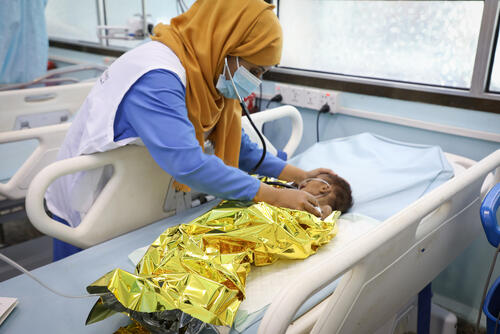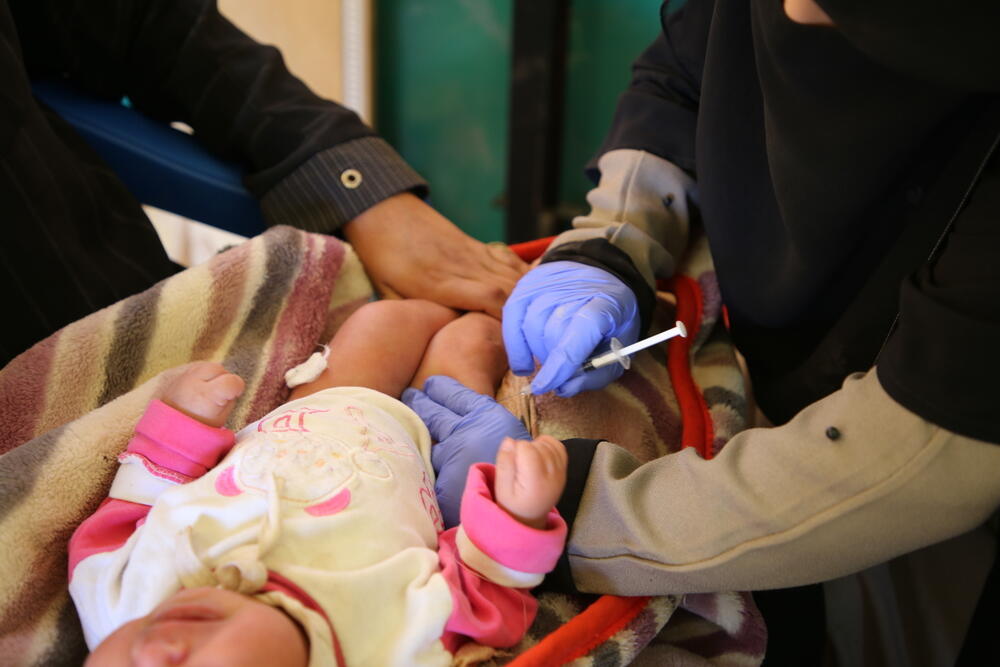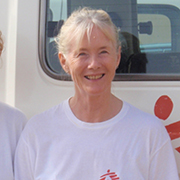Yemen: “What would happen to her if our hospital wasn’t there?”
Nurse Alison Criado-Perez recently returned from Yemen, where she joined a team treating pregnant mothers and children surviving the country’s brutal civil war.
When we arrived in Marib, we found the local hospitals overwhelmed by the sheer number of people and by an influx of war-wounded.
Around 2.7 million people are in the province now, many of them displaced from their homes elsewhere and looking for a safe haven.
People were living in makeshift shelters made of plastic and metal sheets. There were no latrines, just pits dug in the ground outside the tents.
“Supplies often had to cross frontlines. One of our trucks carrying antibiotics, medicines and other supplies was hijacked.”
People were very worried about their health, about the risk of disease, about not having enough food.
We were very concerned about the health of mothers and children, and pregnant women were a major concern too.
Around the clock
Over the next month, our small team worked around the clock to set up clinics providing basic healthcare and to supply hospitals that were struggling.
Getting medicines to this part of Yemen wasn’t easy. Supplies often had to cross frontlines. One of our trucks carrying antibiotics, medicines and other supplies was hijacked.
It was an incredibly difficult environment to work in.
Along with general healthcare, we provided routine vaccinations for children and offered antenatal and postnatal care.
A real difference
We saw a lot of pregnant women and children and were able to refer pregnant women with complications to larger hospitals for emergency caesareans.
It made a real difference.

Help us save lives in Yemen
The day we started working in a rural hospital near the frontline, a woman came in with a breech delivery who was having real difficulty.
Our midwife assisted and everything went well. But who knows what would have happened to that woman if the hospital wasn’t there.
The frontlines
Since I left, many more people have come to the area. But Marib is no longer a safe place to be.
In recent weeks, the frontlines have moved into the province, causing large numbers of injuries and forcing thousands more people to flee their homes.
As the frontline approaches Marib city, we are concerned that people sheltering in the area may find themselves with no place else to go.
After six years of conflict, the situation is desperate. These people need our help now more than ever.
MSF in Yemen
Yemen is in the midst of a civil war. Since March 2015, a Saudi and Emirati-led coalition has been fighting anti-government Ansar Allah forces, resulting in widespread destruction, bombing and gun battles.
Recent outbreaks of diseases and an upsurge in fighting have exacerbated the already dire humanitarian situation in Yemen. With an estimated 20 million in need of humanitarian assistance, our activities in Yemen are among our most extensive worldwide.

